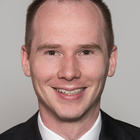Post-2015: The future of the United Nations in Development?
Mahn, Timo / Kristinn Sv. HelgasonThe Current Column (2014)
Bonn: German Development Institute / Deutsches Institut für Entwicklungspolitik (DIE) (The Current Column of 12 May 2014)
Bonn, 12 May 2014. Indications are that a post-2015 agenda on sustainable development will mark a substantial departure from the Millennium Development Goals which have been the framework for international development since 2000. Key development players like the World Bank, European Commission and the OECD/DAC are “looking inside” to determine what an integrated agenda will mean for their mandates, business models and structures. UN member states are yet to initiate a similar strategic reflection. If the debate about being “fit for purpose” is delayed any longer, the UN risks being marginalized. Later this week (15 - 16 May), the biggest contributors to UN in Development are meeting in New York to engage in informal discussions with their UN counterparts on this issue under the aegis of the influential “Utstein Group” which Germany helped establish 15 years ago. In preparation, the UN’s senior management tabled a discussion on “fit for purpose” in the Chief Executives Board a week earlier. This increase in high-level development diplomacy raises optimism that member states are finally gearing up to the debate on how to make UN in Development “fit for purpose” in the new era. Post-2015 requires new type of development organizations
The changing development landscape characterized by a number of ongoing tectonic shifts will necessitate a strategic repositioning of the UN in Development. The type of challenges that countries face – global public goods such as a stable financial market or curtailed cross-border epidemics – are different from those in the past. So are their conditions and affairs, as evidenced by rising economic and political powers like China and others. These changes necessitate a repositioning of the UN in Development. A number of low-income countries and fragile states, on the other hand, continue to be heavily dependent on traditional support. The diversity of development paths goes hand in hand with new expectations in a post-2015 agenda to include action on global public goods. As needs change, so must the UN. In the future, it will increasingly be asked to deliver support in new areas such as strengthening countries’ resilience to climate change and providing policy advice on how to address the various dimensions of inequality. As countries worldwide advance economically, the type of challenges they face become more complex and multi-dimensional. The expertise and services provided by UN in Development need to be able to meet such demand. Often this means that UN experts work together effectively, irrespective of organizational boundaries. Consolidation of overlapping mandates to better deliver-as-one may have to be part of a “fit for purpose” agenda for UN in Development. Crosscutting issues can best be addressed through setting new norms, rules and regulations, areas in which the UN in Development is in a unique position, and assisting countries in translating them into domestic policies. Future relevance of the UN in Development at stake
While the UN leadership is increasingly aware of the organizational and other implications of an integrated agenda for UN in Development, member states have not started the discussion until recently. The upcoming Utstein Meeting is therefore a welcome sign. Instead of matching a post-2015 agenda against what exists, member states need to articulate a vision for the role of UN in Development first, and then align the structures, organizational models, funding and governance accordingly. Making UN in Development “fit for purpose” is a critical step in ensuring the continued relevance of the organization in development. Advancing “fit for purpose” reforms
“Head in the sand politics” of the past are no longer an option. There is, however, little consensus on how such a “fit for purpose” dialogue could be initiated most effectively. The ongoing discussions on a post-2015 agenda could provide the political impetus for a fresh dialogue on the future of UN in Development. This dialogue process could possibly begin with establishing a high-level panel or reform commission, whose findings and recommendations could be debated in-depth by the whole UN membership. Western donors continue to fund around 60% of UN in Development and they exert significant influence in policy-making. Their strong support for a “fit for purpose” dialogue would therefore be a significant development. Ultimately, however, the coalition of supporters needs to be broadened to include as many member states as possible – in particular the emerging economies. These countries are seeking to expand their global influence and need to become active stakeholders in making UN in Development “fit for purpose”. A partnership between the traditional donor countries and the emerging economies on a “fit for purpose” dialogue would be a potent signal. In a constructive dialogue, all issues should be on the table, including sacrosanct issues such as funding and governance of UN in Development. Timo Mahn, Department ‘Bi- and Multilateral Development Cooperation‘, German Development Institute / Deutsches Institut für Entwicklungspolitik (DIE). Kristinn Sv. Helgason, Deputy Chief of the Development Cooperation Policy Branch, Department for Economic and Social Affairs (UN-DESA) and Visiting Professor at Rutgers University. Disclaimer: The views and opinions expressed in this ‘Current Column’ are those of the authors and do not necessarily reflect the official policy or position of the United Nations and/or its entities.

